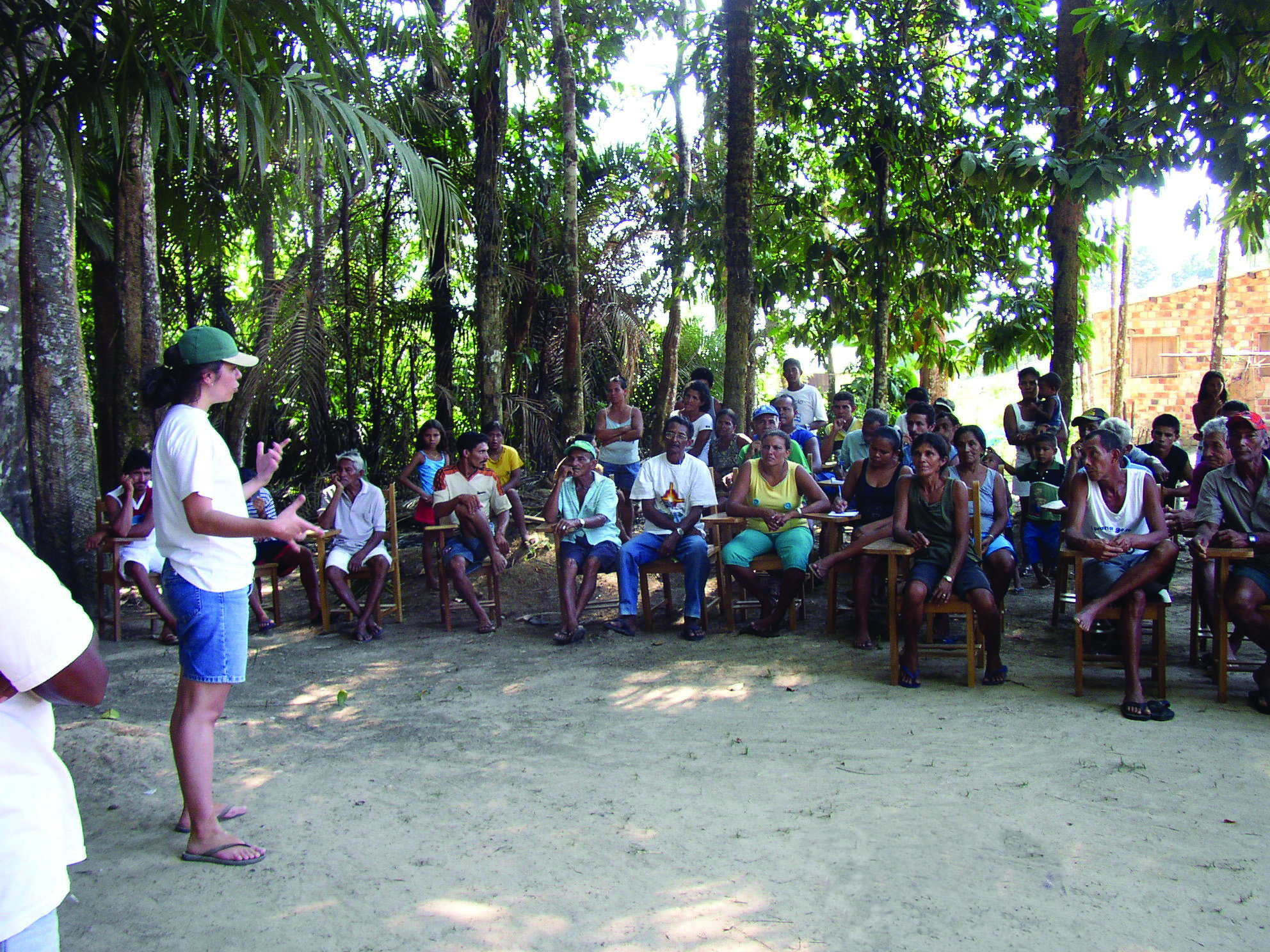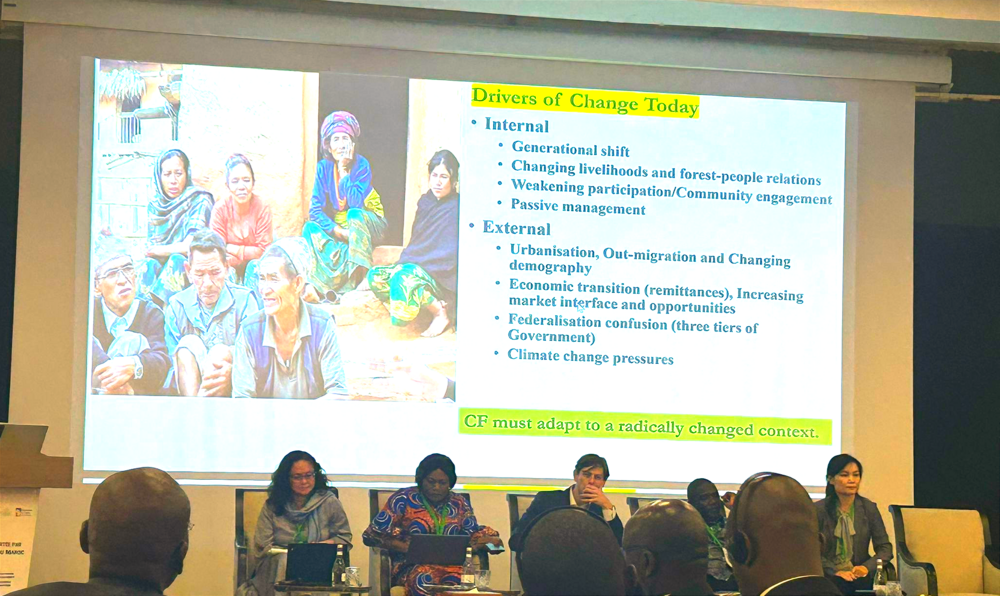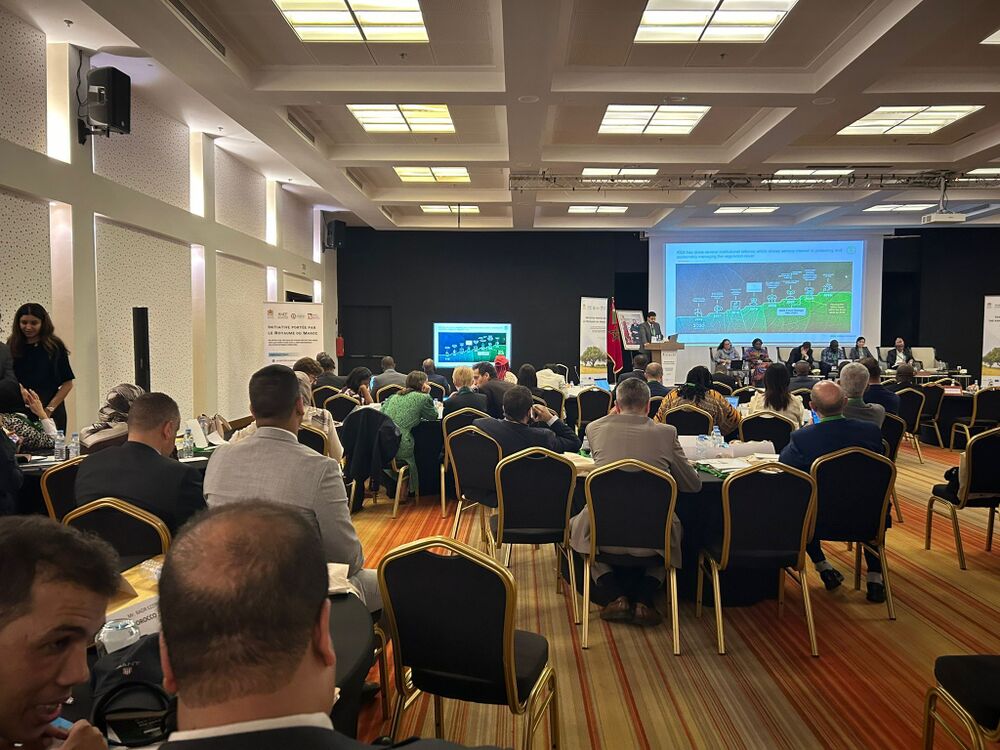Communities first: CBFM highlighted at Morocco-led CLI
08 July 2025, Agadir

ITTO empowers local and Indigenous communities to play a critical role in the sustainable management of forest resources. Photo: ITTO
The first day of discussions at the UN Forum on Forests’ Country-Led Initiative (CLI) organized by the Government of Morocco from 16 to 18 June 2025, highlighted the growing importance and effectiveness of community-based forest management to achieve multiple global sustainable development and environmental goals.
In addition to presenting ITTO’s experience, Ms Jennifer Conje, ITTO Director of Forest Management, played a central role in the proceedings through her moderation of the Community-based Forest Management (CBFM) theme.
The panelist shared lessons learned and explored the critical role local communities play in managing and protecting forest ecosystems. The impressive line up of speakers included representatives from the UN Food and Agriculture Organization (FAO), the International Union of Forest Research Organizations (IUFRO), the Center for International Forestry Research and World Agroforestry (CIFOR-ICRAF), the Mediterranean Model Forest Network (MMFN), and numerous country representatives, including from the host country Morocco, Botswana, Chile, China, Lebanon, Mexico, Nepal, Niger, Congo, Tunisia, and Turkey.

During her presentation, Ms Conje highlighted ITTO’s work with communities in conserving and restoring some of Benin’s Sacred Forests, as well as engagement with the MALEBI Women’s Association in the restoration of the Ahua Forest Reserve in Côte d’Ivoire and the project’s contribution to more sustainable solutions for their wood energy needs and enrichment of their livelihoods. She also showcased ITTO’s work with small landowners and enterprises in Southeast Asia to promote sustainable wood value and supply chains to enhance the social, economic, and environmental benefits to local communities.
“It is important to have dedicated long-term champions within the community and relevant governmental agencies to ensure effective implementation and sustainable outcomes,” said Conje. She emphasized the important roles these champions play in organizing the community, sustaining efforts and ensuring budgetary support from national budgets to ensure the sustainability of project outcomes, long after the project and donor funding ends.
Several panelists also echoed the need to ensure proper incentives and policy frameworks to compensate local communities for restoring and conserving forests, whether it be through payment for environmental services schemes, microcredit loans, carbon credits, or other alternative workable mechanisms. They examined how enabling policies, inclusive governance structures, and participatory approaches can scale up effective community-based forest governance across diverse regional contexts.

The day also highlighted the challenges CBFM faces, such as land-use conflicts, tenure insecurity, limited access to markets and finance, and the growing threat of climate change. Speakers emphasized that overcoming these barriers requires integrated and adaptive approaches rooted in traditional knowledge, gender mainstreaming approaches, equitable benefit-sharing, climate-adaptive and mitigative strategies, and long-term community engagement supported by sound fiscal and legal governmental frameworks, as well as adequate technical extension and support from government and other actors. Panelists to the CBFM dialogue came from over 20 countries, showcasing how community forestry is being successfully implemented and scaled despite growing socio-economic and ecological pressures.
ITTO’s participation in this initiative reflects its commitment to promoting community-centered forestry approaches as part of its mandate to encourage sustainable tropical forest management and legal timber trade. The insights and recommendations emerging from the CLI will inform the agenda of UNFF21 in 2026, where global forest goals 1, 3, and 5 will be reviewed.
“By strengthening international cooperation and creating space for dialogue and action on inclusive forest governance, events like the Morocco CLI are vital to achieving global forest sustainability targets. ITTO will continue to support efforts that put people at the core of sustainable forest solutions,” said ITTO Executive Director Sheam Satkuru.